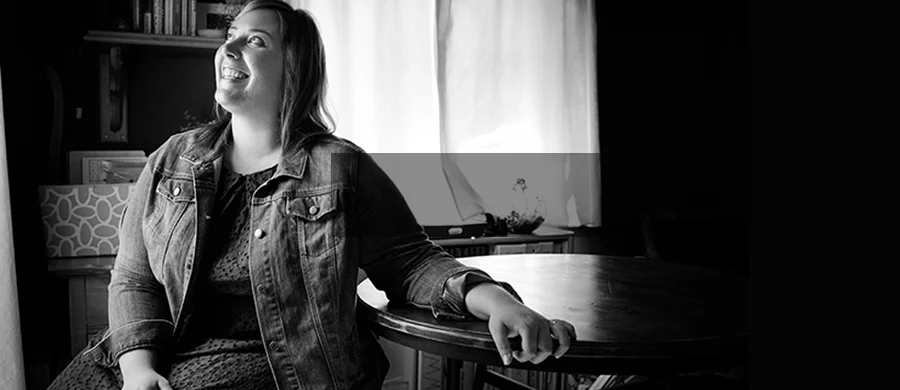I can’t sleep. Not always; just lately.
It’s 4 am and I’m reading an article titled, “The New Midlife Crisis: Why (and How) It’s Hitting Gen X Women,” on the internet. It’s not an uplifting piece. This article posits that many women are, “experiencing what psychologists call ambiguous loss. ‘Ambiguous losses are a particular type of loss that lack a definition and lack closure,’ says Kelly Maxwell Haer, PhD, of the Boone Center for the Family at Pepperdine University, in California.”
The word “ambiguous” is attested in English since the 1520s, and is derived from the Latin ambiguus, “having double meaning, shifting, changeable, doubtful.” It’s constructed from the Latin ambi-, which lends the sense of “around” plus agere, which has the idea of “drive, lead, act.” The denotation of “ambiguous” is literally “to wander, go about, go around.” Pauline Boss, a researcher who studied families of soldiers who went missing in action, first used the term “ambiguous loss” in the 1970s.
Ambiguous loss can describe infertility, for example. You can’t physically lose what you never had, but you can still experience psychological pain over the not having, over your own personal monthly loss cycle. Honestly I didn’t know that was a thing. Turns out it’s totally a thing.
Ambiguous loss can also describe your feels in the wake of the dissolution of your scholarly community on Facebook. It can describe the frustration and pain of navigating school as a dyslexic human. It’s that meandering pathway of pain and loss, with no clear map or center or way forward.
There is no “if this, then that” when it comes to helping children navigate their dyslexia in schools. Every day is a new series of ambiguous losses. The physics teacher who refuses to email you the review sheet for the upcoming test because apparently it’s already on Google Drive; he notes that it’s a real bummer that you don’t have access, maybe someone from the district will “get in touch.” Of course this begs the question that if he uploaded the file to Google Drive he could also just attach that same file to his condescending reply. The math teacher who insists that despite high anxiety and avoidance on the part of your student, in Montessori education all students must be exposed to all fraction operations at one time, so the child is free to explore their “learning potential.” Your dyslexic kid that routinely texts you desperate questions about her homework at 11 pm at night because her homework is totally insane and takes her five hours to complete. The parent who started crying three minutes into your phone call yesterday, who just wants to know when it’s all going to feel easier.
The answer is it’s never going to feel easier, because it’s never going to be easy. The odds are one hundred percent stacked against you and your different brain. If you make it that is a small scale miracle. Of course this is my opinion. Of course these are not facts. If you want facts you can head to Google and find some. I’ll give you a Google-push-on-the-swing-though, and include this fact from the US Department of Education: “60% of America's prison inmates are illiterate and 85% of all juvenile offenders have reading problems.”
Sometimes when it all feels really hard, like now, I fantasize about being a barista. I imagine how much less daily ambiguous loss I’d experience if I was only responsible for making lattes as opposed to attempting to help children and families across what feels so often like a gaping abyss.
But the truth is despite the odds I’m actually pretty good at navigating ambiguous loss. Somehow my kids are learning and thriving despite the very real daily obstacles in their way. And I would be absolute trash at making those amazing foam creatures on the top of fancy coffee drinks.
So I guess I’ll just be over here taking Ls and praying for strength.
